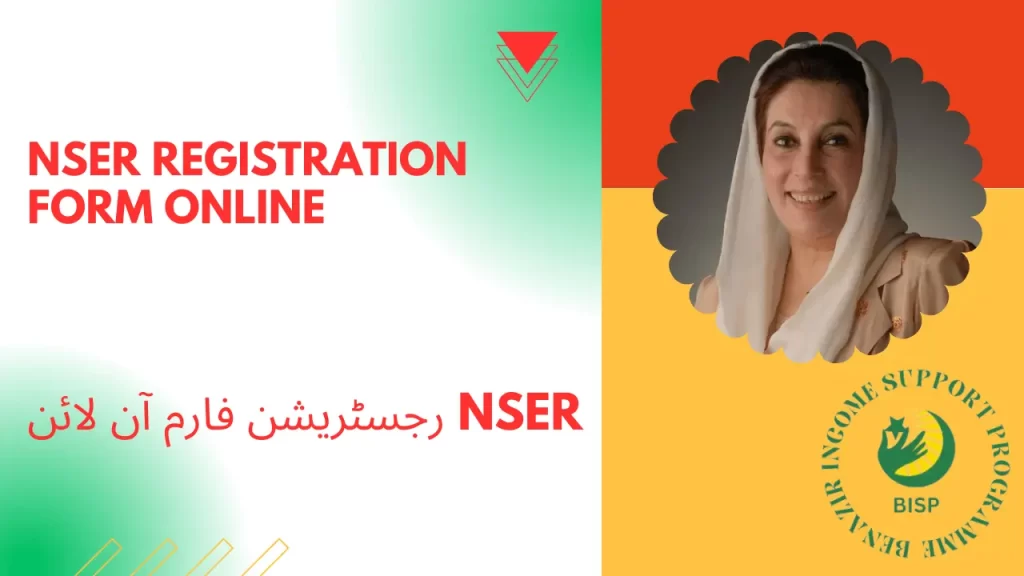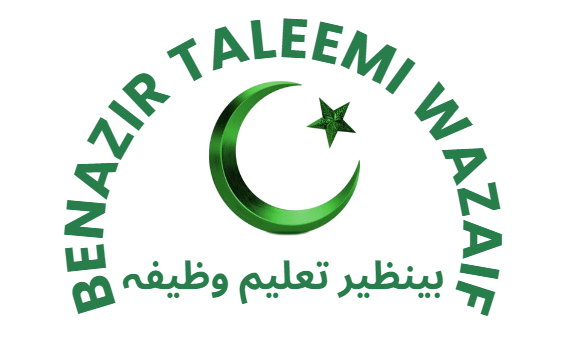Benazir National Socio-Economic Registry (NSER) Survey
Running a social and financial support program requires 100% transparency. To run BISP in Pakistan without any fraud, the government has developed a check and verify system called the National Socio-Economic Registry (NSER).
It is an electronic verification system that is designed to facilitate the enrollment process for social grant programs. The program is continuously collecting data on citizens based on their socioeconomic conditions.
NSER is also attached to NADRA with Computer Assisted Personal Interviewing (CAPI). NSER uses the NADRA’s database to verify all the information of a person who wants to join a social relief program like BISP. Currently, it holds information on over 25 million households, which covers more than 85% of the Pakistani population.
How Does NSER Work?
The National Socio-Economic Registry (NSER) in Pakistan serves as a vital e-government platform, facilitating the registration process for social assistance programs nationwide. Here’s a detailed explanation of how NSER works:
- Data Collection and Registration: NSER collects and compiles data on household socioeconomic characteristics through a systematic registration process. This process involves gathering information directly from households across the country. Trained enumerators or field staff visit households to collect necessary data using standardized forms or digital devices.
- Household Information Gathering: During the registration process, NSER collects various types of information about each household. This information typically includes demographic details such as household size, age distribution, education level, occupation, income sources, assets, housing conditions, and other relevant socio-economic indicators. The data collected aims to provide a comprehensive overview of the household’s socioeconomic status.
- Electronic Database Management: All the collected data is entered into an electronic database managed by NSER. This database serves as a centralized repository for household information, allowing for efficient storage, retrieval, and analysis of data. Advanced database management techniques are employed to ensure data security, integrity, and accessibility.
- Data Validation and Quality Assurance: NSER employs rigorous validation and quality assurance mechanisms to ensure the accuracy and reliability of the collected data. This involves cross-checking and verifying the information provided by households to minimize errors and inconsistencies in the database. Validation processes may include data verification through multiple sources, spot checks, and periodic audits.
- Integration with Social Assistance Programs: The primary purpose of NSER is to facilitate the targeting and delivery of social assistance programs to eligible households. Once households are registered in the NSER database, their socioeconomic information is used to determine their eligibility for various social welfare schemes and programs. NSER serves as a critical tool for identifying and targeting vulnerable populations who require government assistance.
- Efficient Allocation of Resources: By leveraging the data collected through NSER, policymakers and government agencies can make informed decisions regarding the allocation of resources for social assistance programs. The database enables targeted interventions, ensuring that resources are allocated efficiently to those who need them most, thereby maximizing the impact of social welfare initiatives.
- Monitoring and Evaluation: NSER also facilitates ongoing monitoring and evaluation of social assistance programs by providing valuable data on program beneficiaries and their socioeconomic characteristics. This allows policymakers to assess the effectiveness and impact of these programs over time, identify areas for improvement, and make evidence-based policy decisions.
NSER Registration Form Online

Do your NSER registration online with the 8171 web portal. Download the registration form online and then apply for the BISP grant program online.
Here is what you need to do:
- Enter your نام
- Enter your شناختی کارڈ نمبر
- Click on the رجسٹریشن button.
- Get your بے نظیر انکم سپورٹ پروگرام registration via NSER survey online.
National Socio-Economic Registry (NSER) Registration Check by CNIC 786 Online
The government of Pakistan has launched an online verification system to verify the details of the BISP registrant. This program is called the National Socio-Economic Registry (NSER).
If you have done your NSER registration then you need to know whether your registration is approved or not. You can know your Benazir Kafalat Program and Benazir Taleemi Wazaif Program registration online using the NSER.
For this purpose, you have to follow these steps:
- Enter your CNIC number.
- Click on the “Check Registration” button.
- Get your registration approval status online.
NSER Check Balance
Those recipients who are approved for the BISP Rs. 25000 cash can check their NSER balance online and use their CNIC.
The payments are disbursed every month so you need to check your bank accounts or visit the BISP cash centers to collect your cash easily.
NSER Survey Eligibility 2024
To be eligible for BISP payments, each family has to pass the NSER survey in 2024. However, you need to qualify for this test with the following criteria:
- Should have a Pakistani ID card.
- Should not be working in the government sector.
- Must be unemployed or earning less than Rs. 25000 per month.
- For disability, provide proof of disability that makes you unable to work.
If you are fulfilling these requirements, you are good to go and take the NSER survey and apply for BISP registration today.
What Are the Benefits of the NSER Survey?
NSER is helping many NGOs and governments to make their social welfare programs transparent and free from fraudulent activities. Here are some of the benefits:
- Targeted Assistance: By collecting detailed socioeconomic data at the household level, the NSER Survey enables policymakers to accurately identify and target households in need of social assistance. This targeted approach ensures that limited resources are directed towards those who are most vulnerable and in need of support, thereby maximizing the impact of social welfare programs like BISP.
- Reduced Fraud and Misallocation: The rigorous data validation and quality assurance mechanisms employed by NSER help minimize the risk of fraud and misallocation of resources. By verifying the information provided by households and cross-checking it with other databases such as NADRA, NSER ensures that only eligible individuals receive benefits, thereby preventing leakage and ensuring that resources are allocated efficiently.
- Improved Program Effectiveness: The data collected through NSER allows policymakers to make informed decisions regarding the design and implementation of social assistance programs. By understanding the socioeconomic characteristics and needs of program beneficiaries, policymakers can tailor interventions to address specific challenges faced by vulnerable households, thereby enhancing the effectiveness of social welfare initiatives.
- Transparency and Accountability: The NSER Survey promotes transparency and accountability in the delivery of social assistance programs by providing a clear and standardized process for enrollment and verification. By making the registration process accessible online and allowing individuals to check their registration status, NSER ensures that beneficiaries are aware of their entitlements and can hold authorities accountable for delivering benefits in a timely and transparent manner.
- Data-Driven Policy Making: The comprehensive data collected by NSER serves as a valuable resource for evidence-based policymaking in Pakistan. By analyzing trends and patterns in household socioeconomic conditions, policymakers can identify emerging challenges, assess the impact of existing interventions, and formulate targeted policy responses to address underlying structural issues contributing to poverty and inequality.
Final Thoughts
The Benazir National Socio-Economic Registry (NSER) survey stands as a cornerstone for BISP and various other social relief initiatives. It furnishes vital metrics and insights to both governmental bodies and non-governmental organizations (NGOs), serving as the linchpin for informed decision-making and targeted interventions.
If you have any confusion or questions, you are more than welcome to ask me anything via email or comments. Thanks for visiting here today.







